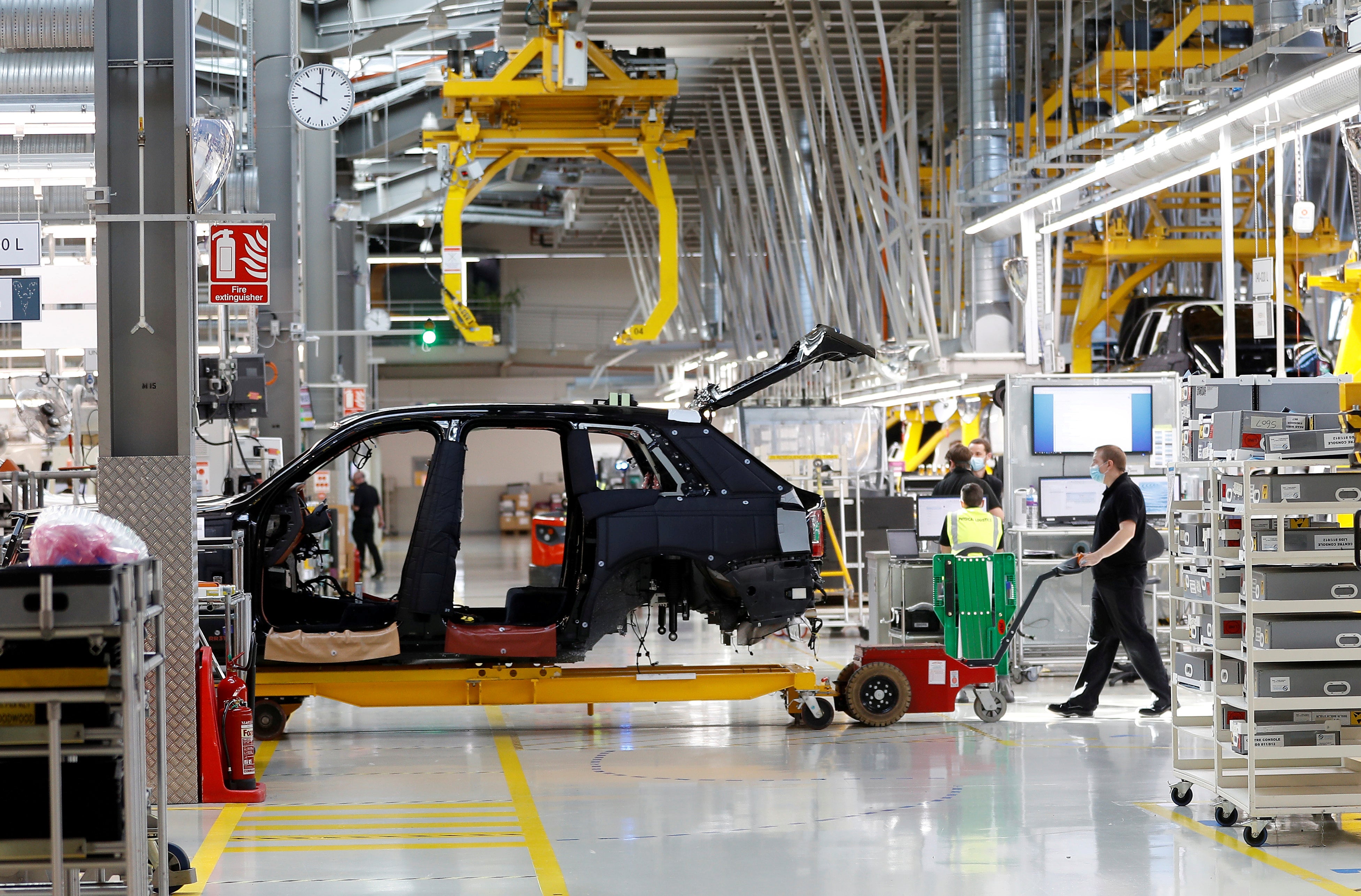Business
Spirit Airlines on track for a $475 million bankruptcy lifeline

A Spirit Airlines Airbus A320 taxis at Los Angeles International Airport after arriving from Boston on September 1, 2024 in Los Angeles, California.
Kevin Carter | Getty Images News | Getty Images
WHITE PLAINS, N.Y. — Spirit Airlines is making “massive progress” to revitalize the airline, the carrier’s restructuring lawyer Marshall Huebner said in a court hearing Tuesday.
The struggling budget airline has reached an agreement with some of its debtholders for up to $475 million in debtor-in-possession financing, a lifeline that bankrupt companies can use to continue operating, as well as $150 million from a major aircraft lessor, Huebner said. The agreements are subject to court approval.
Spirit last month filed for its second Chapter 11 bankruptcy protection in less than a year after high costs, weaker demand and a host of other lingering problems drove more than $250 million in losses from when it emerged from its first bankruptcy in March through June.
The carrier has been racing to slash costs and recently announced plans to cut 40 routes and furlough about one-third of its flight attendants. The airline is in talks with its pilots’ union and is seeking about $100 million in cuts from that group. Last month, Spirit said it was drawing down the entirety of the $275 million in its revolver.
Huebner, a partner at Davis Polk & Wardwell, said in U.S. Bankruptcy Court on Tuesday that people who are pessimistic about the struggling carrier’s turnaround prospects should “say less” and observe what it’s doing.
Spirit said on Tuesday that it now has immediate access to $120 million in liquidity after a motion was granted to use cash collateral.
Spirit is planning to reject leases on 27 Airbus narrow-body aircraft from Ireland-based leasing giant AerCap, 25 of them airplanes that are grounded or will be grounded for inspection due to a Pratt & Whitney engine defect, Huebner said in court. AerCap will pay Spirit $150 million as part of the agreement, under which Spirit would still plan to take delivery of 30 more airplanes, the company said.
Aercap didn’t immediately comment on the plan.
Spirit said it is also planning to reject 12 airport leases and 19 ground handling agreements as the carrier shrinks to cut costs, a plan the court approved.
Another hearing is scheduled for Oct. 10. If the debtor-in-possession financing is approved, $200 million would be available immediately.
“These are significant steps forward in a short period of time to build a stronger Spirit and secure a future with high-value travel options for American consumers,” Spirit CEO Dave Davis said in a news release later Tuesday. “While there’s more work to be done, we’re grateful to our stakeholders who have stepped up to support us during the restructuring.”
Senior secured noteholders at Spirit include Citadel Americas, Ares Management, AllianceBernstein, Arena Capital Advisors and Pacific Investment Management Company, according to a court filing.
Spirit’s competitors United Airlines, Frontier Airlines, JetBlue Airways and Allegiant Airlines have announced new routes in hopes of capturing Spirit’s customers. United CEO Scott Kirby went a step further, saying earlier this month that he expects Spirit to go out of business.
Spirit has struggled for years with an engine recall, a failed acquisition by JetBlue, higher costs, and a shift in consumer tastes for more upmarket offerings. The Dania Beach, Florida-based airline has altered its business strategy to offer higher-end products in recent months.
Business
Major UK supermarket to stop selling mackerel in coming weeks

Waitrose is set to remove mackerel from its shelves amid escalating concerns over unsustainable fishing practices.
The retailer said that it is the first major UK supermarket to suspend sourcing of the popular fish.
It said that fresh, chilled, and frozen mackerel, primarily sourced from Scottish waters, will be unavailable to shoppers by 29 April. Tinned varieties will follow once the current stock is depleted.
Conservationists are welcoming the move and urging other supermarkets to follow suit.
The measure comes as governments have repeatedly failed to implement catch limits recommended by scientists, jeopardising the long-term viability of mackerel stocks.
The International Council for Exploration of the Sea (ICES) has issued stark warnings, advising a 70 per cent reduction in catches for 2026 across all regional mackerel stocks compared to 2025’s recommended levels.
With the stock consistently fished above sustainable thresholds, this translates to a 77 per cent cut on the 755,143 tonnes scientists estimated would be caught in 2025.
Overfishing has resulted in depleting mackerel stocks in the north-east Atlantic, with Ices saying the species, and the wider fishing industry, could face long-term risks unless countries stick to recommended catch limits.
Waitrose said the decision in December by four of the coastal states which fish mackerel to cut catches by 48 per cent was a step forward, but did not meet Ices advice.
North-east Atlantic mackerel will no longer meet the supermarket’s responsible sourcing requirements in line with the Sustainable Seafood Coalition codes of conduct, the retailer said.
Jake Pickering, head of agriculture, aquaculture and fisheries at Waitrose, said: “By suspending sourcing of mackerel at Waitrose we are reinforcing our ethical and sustainable business commitments, acting to tackle overfishing and protect the long-term health of our oceans and this crucial fish.
“Our customers trust us to source responsibly, and we are closely monitoring the fishery.
“We look forward to bringing mackerel back to our shelves once it meets our high sourcing standards.”
As alternatives, Waitrose is launching a new range of fish products including hot smoked herring, hot smoked peppered herring and hot smoked sweetcure seabass, all of which are Marine Stewardship Council (MSC) certified.
The retailer said it would also introduce MSC-certified frozen sardines from May as a sustainable replacement for frozen mackerel, and plans to become the first retailer to sell 100 per cent MSC tinned sardines.
Waitrose said it would maintain its relationship with its mackerel suppliers and its new supply of herring, seabass, sardines and trout will be sourced through current supplier partnerships.
But there is currently no predetermined time-frame as to when Waitrose will start sourcing mackerel again.

Marija Rompani, director of ethics and sustainability at the John Lewis Partnership, said: “We believe sustainable food production must balance climate action, nature protection and responsible fish sourcing is fundamental to protecting our oceans.
“We will continue to work closely with suppliers and industry partners to support the recovery and responsible management of fish stocks.”
Charles Clover, co-founder of conservation charity Blue Marine Foundation, said mackerel – one of the largest remaining commercial fish stocks in the north-east Atlantic – had declined 75 per cent in the last 10 years because fishing nations, including the UK, had overfished it.
“They have put too little effort into the task of reaching agreement on a sharing arrangement – and some countries have been awarding themselves more quota than is justified by science,” he said.
“This crisis has been ignored for too long.
“We hope that this action by Waitrose sends it to the top of the political agenda. We call on other retailers to follow Waitrose’s example.”
Business
If Your Salary Never Lasts Till Month-End, These 5 Mistakes Might Be Why

The arrival of a salary credit message at the beginning of the month often brings a sense of relief and optimism, with many planning to save money or make long-delayed purchases. However, for a large number of salaried individuals, that confidence fades quickly as expenses begin to pile up. Rent, electricity bills, EMIs, online purchases, dining out and everyday spending gradually reduce bank balances, leaving many struggling by the third week of the month. (News18 Hindi)

Financial experts say that recurring cash shortages are often not caused by insufficient income but by poor money habits. Small and unnoticed mistakes in managing personal finances can gradually weaken long-term financial stability. The good news, experts note, is that these habits can be corrected with simple changes and better planning. (News18 Hindi)

1. One of the most common mistakes is the absence of a proper budget. Many people begin spending as soon as their salary is credited without deciding in advance how the money will be used. Without a clear spending plan, expenses tend to rise uncontrollably. Experts recommend allocating money for essential needs such as rent, groceries, utility bills and savings immediately after receiving a salary. Preparing a simple budget by listing fixed monthly expenses in a notebook or mobile app can help maintain financial discipline. (News18 Hindi)

2. Frequent small online purchases also contribute significantly to unnecessary spending. With doorstep deliveries and frequent discounts, cashback offers and flash sales, consumers often buy items that are not essential. While individual purchases may seem minor, repeated spending of a few hundred or thousand rupees can add up to a substantial amount by the end of the month. Financial planners advise clearly distinguishing between needs and wants before making purchases. (News18 Hindi)

3. Another major mistake is the absence of an emergency fund. Unexpected expenses such as medical bills, urgent travel or home repairs can disrupt monthly budgets. Without savings set aside for emergencies, many individuals rely on credit cards or loans, which can lead to debt and reduce the following month’s disposable income. Experts suggest building an emergency fund gradually, ideally covering at least three months of essential expenses. (News18 Hindi)

4. Saving only what remains at the end of the month is another common but ineffective approach. In most cases, little or no money is left after regular spending. Financial advisers recommend setting aside savings as soon as the salary is credited, a strategy often referred to as the “pay yourself first” principle. This method helps create a consistent saving habit. (News18 Hindi)

5. Spending to maintain a certain lifestyle is also a growing concern, particularly in the age of social media. The desire to match others’ lifestyles often leads to purchases such as expensive gadgets, branded clothing or frequent dining out, even when these expenses exceed one’s income. Experts warn that such spending patterns can increase financial stress and recommend aligning lifestyle choices with income and financial priorities. (News18 Hindi)

To improve financial discipline, experts advise reviewing expenses from the previous three months to understand spending patterns. Based on this assessment, individuals can create a simple plan that divides income into spending, saving and investing. Automated savings options such as Systematic Investment Plans (SIPs) or recurring deposits can help ensure consistent saving. Even small financial changes, experts say, can lead to significant long-term benefits. (News18 Hindi)
Business
Rolls-Royce profits soar after major UK and US defence orders

Rolls-Royce has announced a significant surge in its annual profit, climbing by £1 billion, alongside an upgraded financial outlook for the coming years.
The engineering powerhouse attributed this robust performance to substantial military aircraft orders and burgeoning demand for powering data centres.
The company reported an underlying operating profit of £3.5 billion for 2025, marking a 40 per cent increase from the £2.5 billion achieved in the previous year.
Underlying revenues also surpassed £20 billion over the period, representing approximately a tenth’s rise compared to 2024.
This impressive growth was fuelled by strong profit and sales across its civil aerospace, defence, and power divisions.
Rolls-Royce highlighted particularly strong demand for its defence products, securing major orders throughout 2025. The firm stated its various business units are well-positioned to capitalise on “key global trends” in the years ahead.
This included contracts worth more than £1.5 billion with the UK’s Ministry of Defence and the US’s Department of War for EJ200 and AE 2100 engines to power military aircraft.
New orders for the Eurofighter aircraft engines from Italy, Germany and Spain, as well as export agreements from Turkey, will drive production into the 2030s, it said.
Furthermore, Rolls-Royce said it was benefiting from growing demand for power generation, driven by data centres with revenues up by more than a third.
Rolls-Royce said it was now expecting underlying operating profits to increase to between £4.9 billion and £5.2 billion by 2028 following the strengthened financial performance in 2025.
This is significantly higher than the £3.6 billion to £3.9 billion range that it had previously been targeting.
Chief executive Tufan Erginbilgic said growth would not have been possible “before our transformation”, with the business making £600 million worth of cost savings since 2022.

“With our new capabilities and mindset, we have navigated challenges from supply chain to tariffs, and delivered a strong performance in 2025, all while we built the foundations for significant growth for years to come,” he said.
“Based on our 2026 guidance, we expect to deliver underlying operating profit within the prior mid-term guidance range two years earlier than planned.
“Beyond the mid-term we continue to see significant growth from existing businesses as well as from new business opportunities.”
-

 Tech7 days ago
Tech7 days agoA $10K Bounty Awaits Anyone Who Can Hack Ring Cameras to Stop Sharing Data With Amazon
-

 Fashion6 days ago
Fashion6 days agoICE cotton ticks higher on crude oil rally
-

 Business6 days ago
Business6 days agoUS Top Court Blocks Trump’s Tariff Orders: Does It Mean Zero Duties For Indian Goods?
-

 Business5 days ago
Business5 days agoEye-popping rise in one year: Betting on just gold and silver for long-term wealth creation? Think again! – The Times of India
-

 Entertainment5 days ago
Entertainment5 days agoViral monkey Punch makes IKEA toy global sensation: Here’s what it costs
-

 Sports6 days ago
Sports6 days agoBrett Favre blasts NFL for no longer appealing to ‘true’ fans: ‘There’s been a slight shift’
-

 Entertainment6 days ago
Entertainment6 days agoThe White Lotus” creator Mike White reflects on his time on “Survivor
-

 Tech7 days ago
Tech7 days agoDonald Trump Jr.’s Private DC Club Has Mysterious Ties to an Ex-Cop With a Controversial Past













